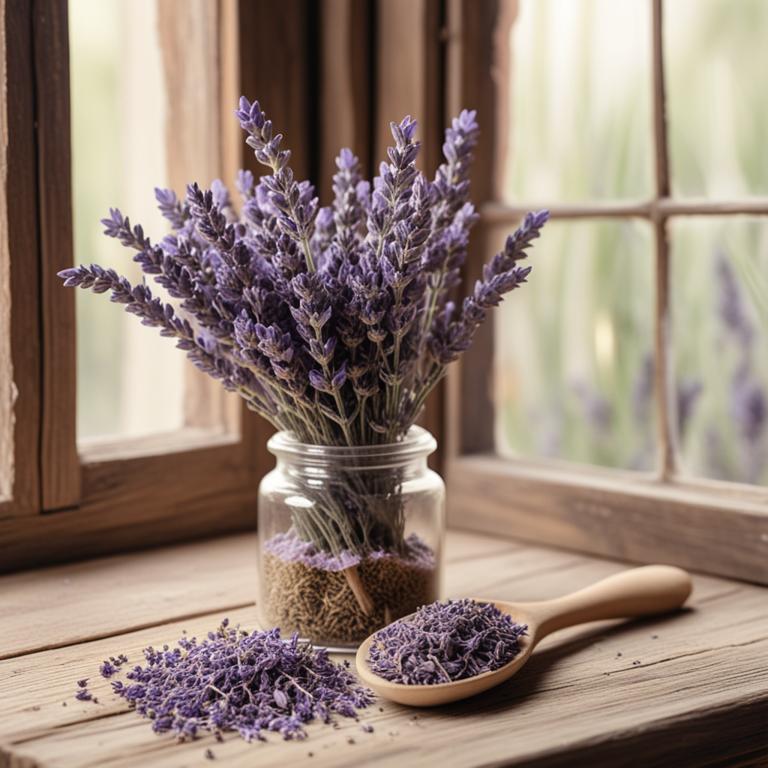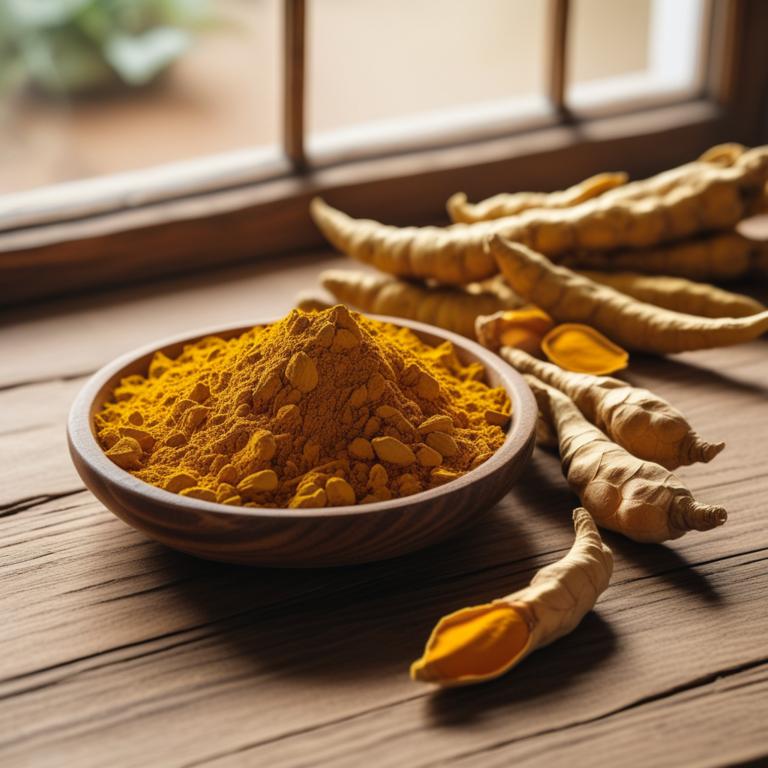Updated: Dec 1, 2024
Causes, Symptoms, and Herbal Preparations for Plantar Fasciitis
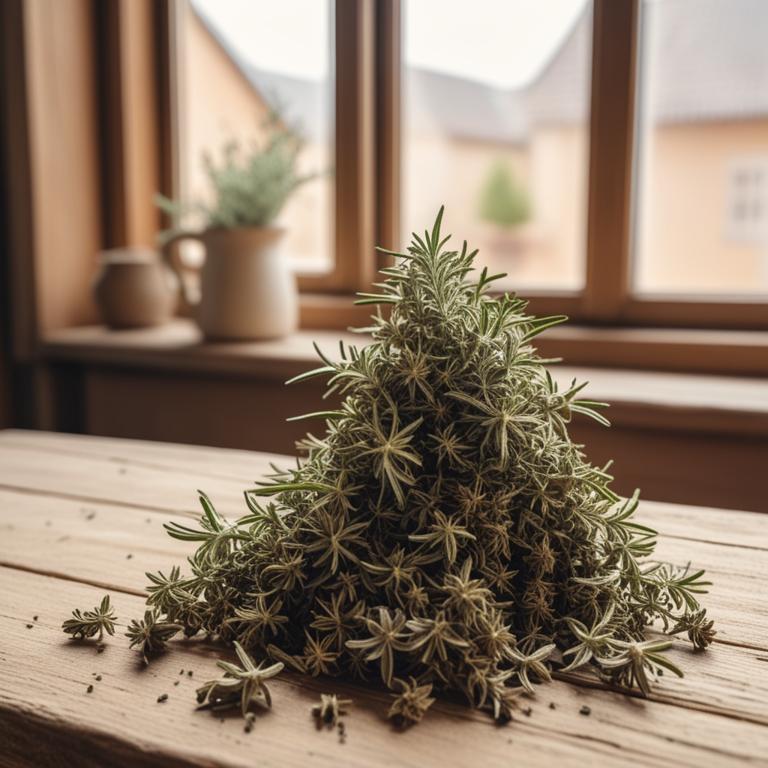
Plantar fasciitis is a painful condition that affects the bottom of the foot, causing sharp stabbing pains and discomfort when walking or standing.
It can significantly impact your daily life, making simple tasks feel like a chore. The condition occurs when the plantar fascia, a band of tissue that supports the foot's arch, becomes inflamed due to repetitive strain or overuse. Plantar fasciitis can be caused by wearing shoes that don't fit properly, running or walking on hard surfaces, or even having flat feet. Other factors, such as being overweight or having a job that requires standing for long periods, can also contribute to the condition. Fortunately, there are herbal remedies that can help alleviate the pain and inflammation associated with plantar fasciitis.
Herbs like turmeric and ginger, which are known for their anti-inflammatory properties, can be used to reduce swelling and pain. Willow bark, which contains salicin, a natural pain reliever similar to aspirin, can also be beneficial. Herbal teas, such as ginger and turmeric tea, can be made by steeping the herbs in hot water. You can also take supplements in capsule or powder form. Another option is to soak your feet in a warm bath infused with herbs like Epsom salt and essential oils like peppermint or eucalyptus.
These remedies can help reduce pain and inflammation, promoting healing and recovery from plantar fasciitis.
Table of Contents
- What triggers plantar fasciitis?
- What benefits can be achieved by using herbs to mitigate plantar fasciitis symptoms?
- What are the key medicinal herbs for managing plantar fasciitis?
- What are the most widely used herbal preparations for plantar fasciitis?
- Which herbs may worsen plantar fasciitis, and should you avoid them?
- FAQ
What triggers plantar fasciitis?
The main causes of plantar fasciitis are related to how we use our feet and the way our bodies are structured.
One of the main causes is overuse, which happens when we put too much stress on our feet, especially on the heel and the bottom of the foot. This can be due to activities like running, dancing, or even just standing for long periods of time. When we overuse our feet, the plantar fascia, a band of tissue that supports the arch, gets inflamed and irritated. Another cause is having flat feet or high arches. When you have flat feet, the arch of your foot is collapsed, which puts extra stress on the plantar fascia.
On the other hand, people with high arches often have tight calf muscles, which can lead to poor foot mechanics and put strain on the plantar fascia. Having either flat feet or high arches can cause the plantar fascia to stretch and become inflamed. Wearing tight calf muscles is also a contributing factor. When your calf muscles are tight, it can cause your foot to point downwards, which puts extra stress on the plantar fascia. This can lead to inflammation and pain. Lastly, wearing poor footwear can also contribute to plantar fasciitis.
Wearing shoes that don't fit properly, or don't have enough support or cushioning, can put extra stress on the plantar fascia, leading to inflammation and pain.
What benefits can be achieved by using herbs to mitigate plantar fasciitis symptoms?
Using herbs to help with plantar fasciitis can be a great option for some people.
One main benefit is that they can help reduce inflammation and pain in the heel and bottom of the foot. These herbs have anti-inflammatory properties that can make it easier to walk and move around without feeling sharp pain or discomfort.
They can also help relax the muscles and tendons in the foot, which can become tight and stiff when you have plantar fasciitis. This can make it feel like you're walking on a cloud, rather than having every step feel like a strain. Some people find that using herbs also helps to reduce swelling and bruising, which can make the pain and discomfort feel worse.
By using herbs to help manage plantar fasciitis, you can start to feel better and get back to your normal activities without feeling held back by foot pain.
What are the key medicinal herbs for managing plantar fasciitis?

Herbs can be a great addition to your treatment plan for plantar fasciitis, a painful condition that affects the heel and bottom of the foot.
For example, Zingiber officinale, also known as ginger, has anti-inflammatory properties that can help reduce pain and swelling. It can also help relax the muscles and improve blood flow, which can aid in the healing process. Curcuma longa, or turmeric, is another herb that contains compounds that have anti-inflammatory effects, making it a great natural remedy for plantar fasciitis. Its active ingredient, curcumin, can also help reduce oxidative stress and promote healing in the affected area. Achillea millefolium, commonly known as yarrow, has been used for centuries to treat various ailments, including inflammation and pain.
Its anti-inflammatory properties can help reduce pain and swelling in the heel and foot, while its antiseptic properties can help prevent infection. Glycyrrhiza glabra, or licorice root, has anti-inflammatory and soothing properties that can help reduce pain and inflammation in the affected area. Its compounds can also help relax the muscles and improve blood flow, which can aid in the healing process. Arnica montana, also known as mountain arnica, is a popular herb used to treat pain and inflammation. Its anti-inflammatory properties can help reduce pain and swelling, while its antiseptic properties can help prevent infection.
It can also help relax the muscles and improve blood flow, which can aid in the healing process.
What are the most widely used herbal preparations for plantar fasciitis?

Herbal preparations can be a helpful addition to your treatment plan for plantar fasciitis.
A decoction of ginger and turmeric can be made by simmering the roots in water, which can help reduce inflammation and ease pain in the heel. You can also apply a cream or ointment made from arnica or capsaicin to the affected area, which can help numb the pain and reduce swelling.
Drinking tea made from feverfew or willow bark can also help reduce pain and inflammation in the plantar fascia. Some herbal supplements come in capsule form, such as devil's claw or celery seed, which can be taken orally to help reduce pain and inflammation. A tincture of cayenne pepper or wintergreen can be applied topically to the affected area, which can help reduce pain and inflammation.
These herbal preparations work by reducing inflammation, numbing the pain, and promoting healing in the plantar fascia.
Additional Resources:
- 9 herbal creams for plantar fasciitis
- 8 herbal teas for plantar fasciitis
- 11 herbal tinctures for plantar fasciitis
Which herbs may worsen plantar fasciitis, and should you avoid them?
If you have plantar fasciitis, it's best to be careful with some herbs that might make your condition worse.
Echinacea purpurea, for instance, is known to cause inflammation, which can irritate your plantar fascia even more. This means your pain and discomfort might get worse if you take it. Hypericum perforatum, also known as St. John's Wort, has a similar issue - it can cause inflammation and make your plantar fascia more irritated. This can lead to increased pain and discomfort in your heel and foot. Urtica dioica, or nettle root, is another herb to be cautious with.
It can cause an allergic reaction in some people, and this reaction can manifest as skin irritation or inflammation, which can worsen plantar fasciitis. Eucalyptus globulus is often used for its decongestant properties, but it can also cause inflammation and irritation in some people. If you have plantar fasciitis, using eucalyptus oil or taking eucalyptus supplements might make your condition worse. Valeriana officinalis, or valerian root, is often used as a natural remedy for anxiety and insomnia, but it can also cause dizziness and drowsiness. This can make it difficult to walk or stand, which can exacerbate plantar fasciitis.
If you have plantar fasciitis, it's best to avoid valeriana root or use it with caution under the guidance of a healthcare professional.
FAQ
Are there any specific herbs that can prevent plantar fasciitis?
Some herbs, like turmeric and ginger, have anti-inflammatory properties that may help ease plantar fasciitis symptoms.
These herbs contain compounds that reduce swelling and pain. Taking them in supplement form or applying a topical cream may provide relief.
However, more research is needed to confirm their effectiveness in preventing plantar fasciitis.
Is it safe to use herbal remedies for plantar fasciitis during pregnancy?
When it comes to using herbal remedies for plantar fasciitis during pregnancy, it's best to be cautious.
Some herbs might interact with pregnancy hormones or affect the baby's development. Look for gentle, natural options like arnica or ginger, which may help with pain and inflammation.
Always check the ingredients and follow the recommended dosage.
Are there any herbs that can reduce the frequency of plantar fasciitis?
Turmeric, a natural anti-inflammatory, may help reduce plantar fasciitis discomfort.
Ginger's anti-inflammatory properties also show promise in alleviating heel pain.
Some people find that taking these herbs in capsule or tea form helps to ease inflammation and reduce pain in the affected area, allowing for more comfortable walking.
Can i combine different herbal remedies for plantar fasciitis?
You can combine different herbal remedies for plantar fasciitis, but be cautious with how you mix them.
Some herbs can interact with each other or with medications, so start with small amounts and watch for any adverse effects.
Research the individual ingredients and their recommended dosages before creating your own blend.
Related Articles
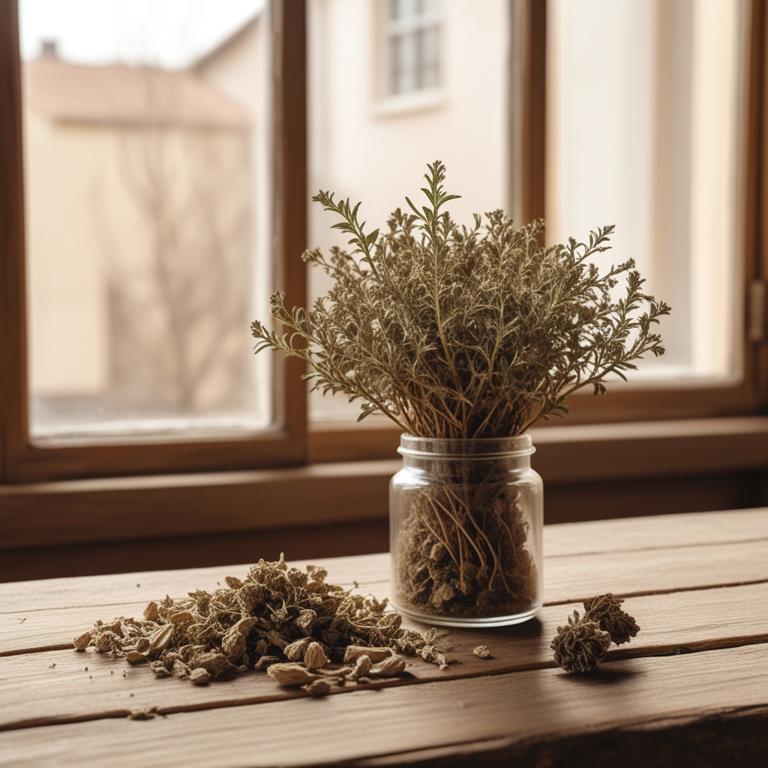
Relieving Muscle Pain: Understanding Its Causes and Herbal Remedies

Understanding Bunion Causes and Using Medicinal Herbs for Relief
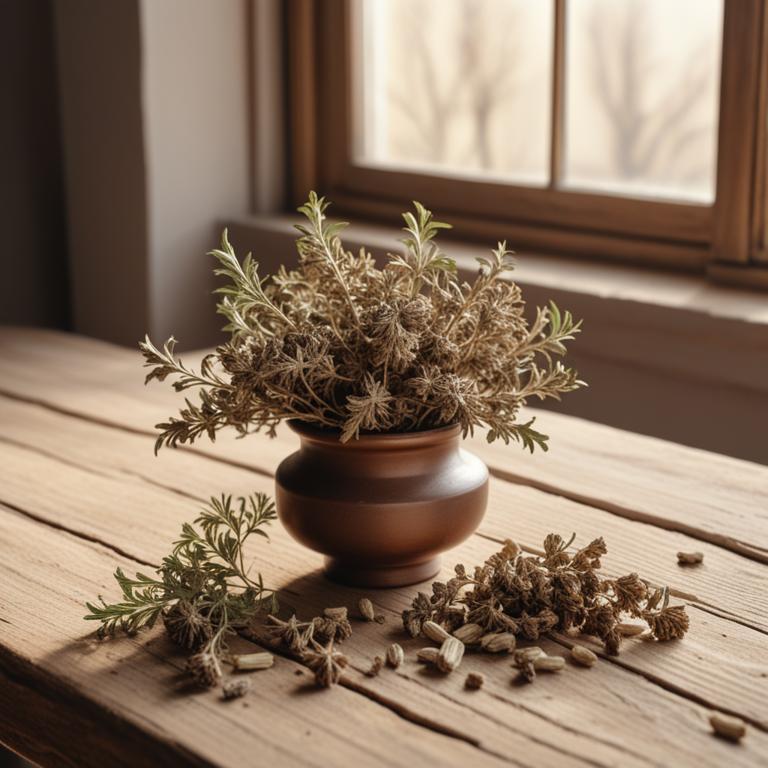
Difficulty Chewing: Understanding the Causes and Medicinal Herbs
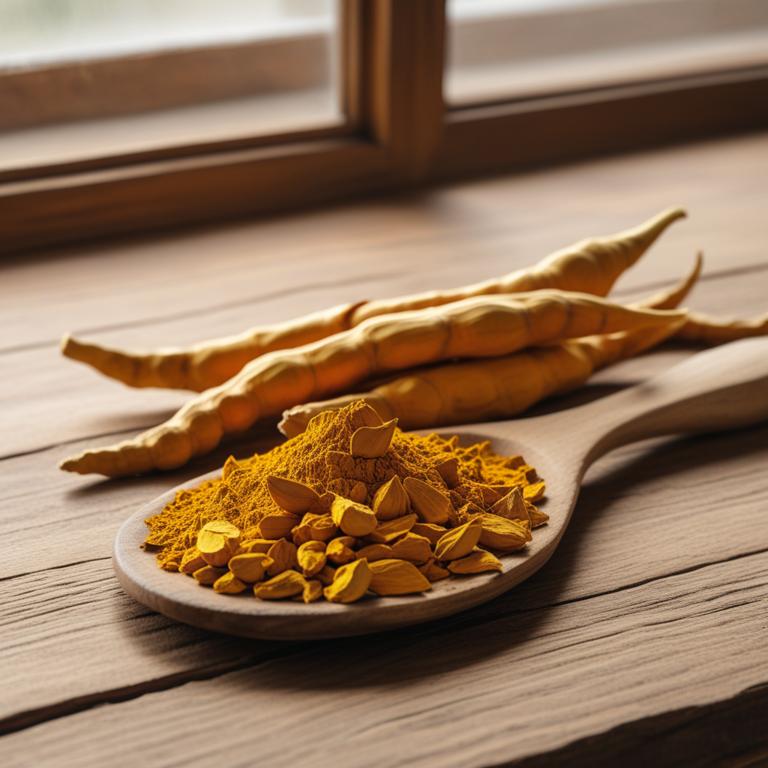
Bursitis: Causes, Natural Herbs, and Proven Preparations
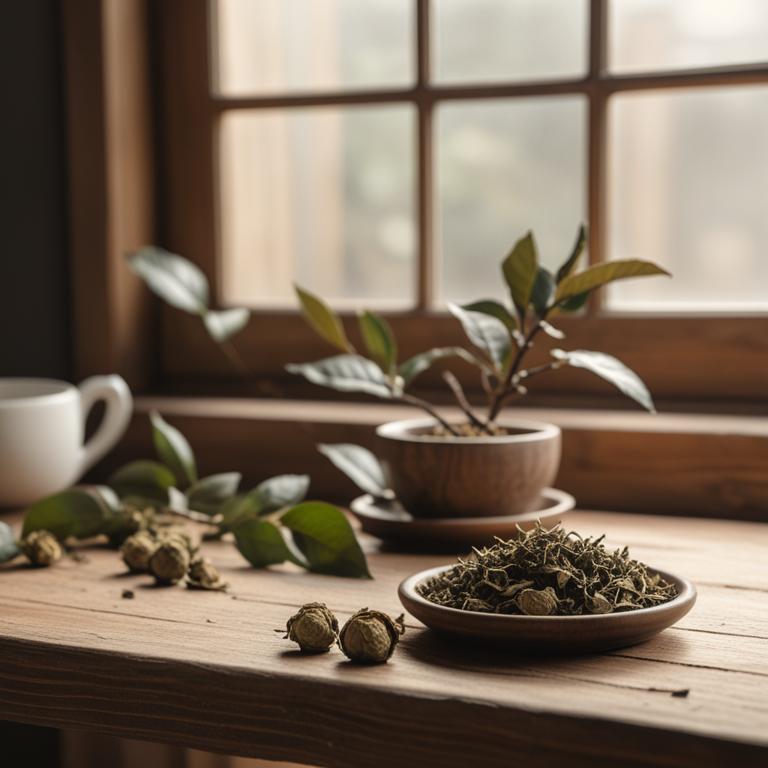
Jaw Pain: Causes, Herbal Remedies, and Homeopathic Preparations




